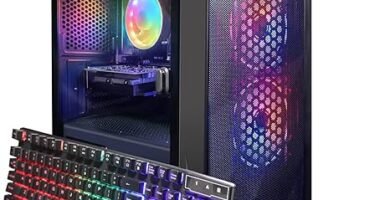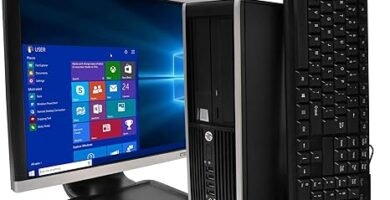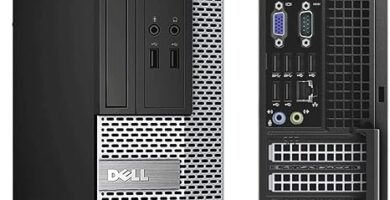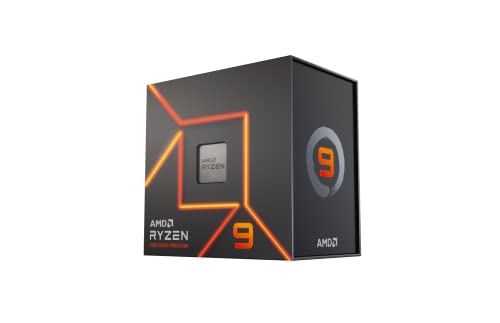
Processor Types: An Overview
The processor (CPU) is the heart of any computer system, responsible for executing instructions and processing data. Various processor types are available, each designed to meet different performance needs, from basic computing tasks to intensive workloads like gaming, video editing, and AI processing. In this article, we will explore the most common processor types, their characteristics, and typical use cases.
1. Central Processing Unit (CPU)
The CPU is the standard processor found in most computing devices. It handles all the instructions given to the computer, performing both basic and complex tasks. CPUs come in various types, mainly differentiated by the number of cores and their clock speeds.
- Single-core CPUs: An older and simpler processor type, now mostly outdated. It can handle only one instruction at a time, making it much slower than modern processors.
- Multi-core CPUs: Most modern processors are dual-core, quad-core, or higher (up to 16 cores or more). More cores allow the CPU to perform multiple tasks simultaneously, improving multitasking and overall performance. Common examples include:
- Intel Core Series: i3, i5, i7, and i9 processors are widely used for everything from basic computing to high-performance gaming and content creation.
- AMD Ryzen Series: Ryzen 3, 5, 7, and 9 are known for their excellent multi-threading performance, making them ideal for gaming and multi-core-intensive tasks.
2. Graphics Processing Unit (GPU)
While the CPU handles general computing tasks, the Graphics Processing Unit (GPU) specializes in rendering graphics, especially for gaming, 3D modeling, and video editing. There are two main types of GPUs:
- Integrated GPUs: Found within the CPU itself, these share the system memory (RAM) and are suitable for everyday tasks like web browsing and streaming videos. Intel’s UHD Graphics and AMD’s Radeon Vega integrated GPUs are examples of this type.
- Dedicated GPUs: These are standalone chips with their own dedicated memory (VRAM). They are crucial for high-performance gaming, professional 3D work, and video editing. Examples include the Nvidia GeForce RTX series and AMD Radeon RX series.
3. Digital Signal Processor (DSP)
Digital Signal Processors (DSPs) are specialized processors designed to handle real-time signal processing tasks, such as audio, video, and sensor data. They are commonly used in devices like smartphones, smart speakers, and media players to optimize sound and image quality. DSPs are also found in industries like telecommunications and automotive systems.
4. Application-Specific Integrated Circuit (ASIC)
An ASIC is a type of processor designed for a specific application or task, such as cryptocurrency mining or video encoding. Unlike general-purpose processors like CPUs and GPUs, ASICs are highly efficient in their designated roles but lack the versatility to perform other tasks.
5. Field-Programmable Gate Array (FPGA)
An FPGA is a processor that can be reprogrammed for various tasks, making it highly flexible for applications that require custom computing solutions. FPGAs are commonly used in sectors like telecommunications, aerospace, and medical devices, where specialized processing is needed.
6. Mobile Processors
Mobile processors are optimized for low power consumption and heat generation, making them ideal for laptops, tablets, and smartphones. Examples include:
- Apple M1/M2: Found in MacBooks and iPads, these ARM-based processors are known for their excellent performance and energy efficiency.
- Qualcomm Snapdragon: Commonly used in Android smartphones and tablets, Snapdragon processors provide a balance between performance and battery life.
7. Microcontrollers
Microcontrollers are small, low-power processors embedded in devices to perform simple tasks. These processors are found in embedded systems like home appliances, cars, and industrial machines. They usually contain a CPU, memory, and input/output peripherals on a single chip.
Conclusion
The type of processor you choose depends largely on the intended use of the device. CPUs and GPUs dominate the general computing and gaming space, while specialized processors like DSPs, ASICs, and FPGAs excel in industry-specific applications. Understanding the capabilities of each processor type is key to selecting the right hardware for your needs.

Skytech Nebula Gaming PC

How to Choose the Perfect PC

Components

Ryzen

Personal Computer Use












